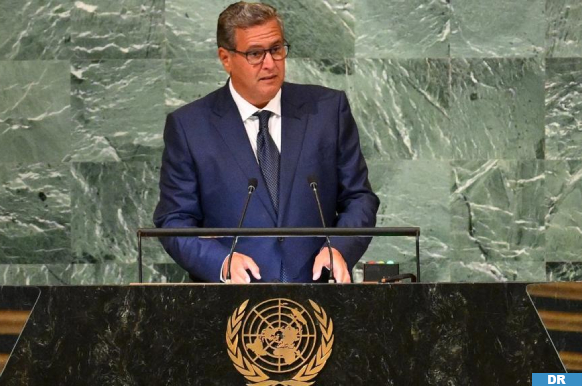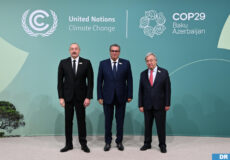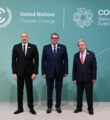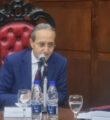New York: Head of Gov’t Highlights Morocco’s Efforts to Tackle Food and Climate Crises
United Nations (New York) – Head of Government, Aziz Akhannouch highlighted, Tuesday in New York, Morocco’s efforts to ensure food security within the framework of South-South cooperation, and to face the negative impact of the climate crisis, particularly in Africa.
In his speech on behalf of Morocco during the general debate of the 77th General Assembly of the United Nations, Akhannouch stressed that the Kingdom continues to invest in the agricultural sector so that it is able to adapt to climate change, especially through strengthening cooperation with Africa.
“The African continent has nearly half of the arable land in the world that is not yet exploited,” he noted, adding that global disruptions will have a negative impact on efforts to achieve food security, if countries fail to adapt their capabilities to the new reality.
The Head of Government also said that Morocco continues to implement the “Generation Green” strategy, in accordance with the High Guidance of HM King Mohammed VI, to achieve food security.
In line with the vision of HM King Mohammed VI, Morocco has constantly warned about the negative impact of the climate crisis on Africa, the continent that suffers most, said Akhannouch.
The Head of Government also recalled that Morocco has decided to increase by 45.5% its national contribution to reduce greenhouse gas emissions by 2030, noting that this objective is part of a comprehensive Moroccan strategy to achieve a low-carbon development by 2050 for a transition to a green economy in line with the principles of sustainability, which are the foundation of the new development model of the Kingdom.
This ambition also embodies Morocco’s willingness to pursue the implementation of commitments agreed at the African summit held in Marrakech in 2026, on the sidelines of the Conference of the Parties to the Convention on Climate Change (COP22) under the high patronage of HM King Mohammed VI, particularly with regard to the development of the agricultural sector’s capacity to adapt to climate change and the increased use of sustainable energies, said Akhannouch.














